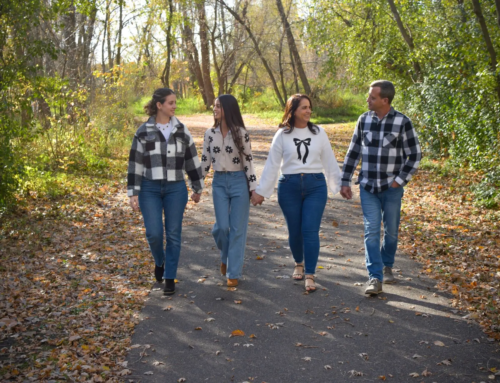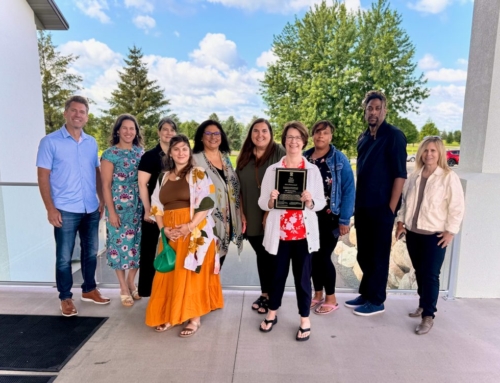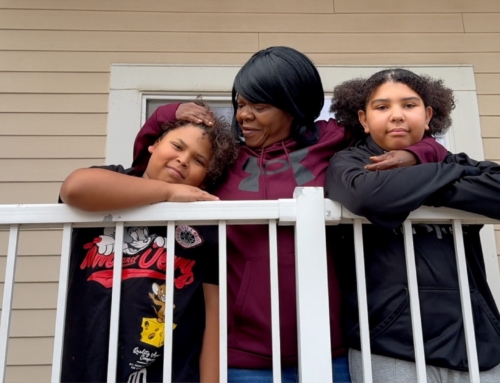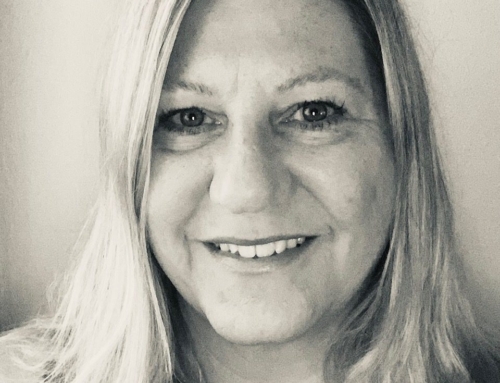Each member of the 360 Communities Board of Directors brings a unique perspective and set of skills to help guide the organization and achieve its mission. A recent addition to the board, Laura Bel Fadel, is no exception. She is a successful tax technology senior manager at KPMG, a champion bowler, and a caring mother of two.
She is also a survivor of intimate partner violence.
For Laura, her experience as a survivor has taught her that there are common domestic violence myths she would like to dispel.
“I think for me the biggest myth was that it had to be physical abuse.”
“It’s that emotional abuse, the verbal abuse, and that control.” Her partner kept her from seeing her family. She says she couldn’t go out with her friends at night or hug her male friends. He wouldn’t allow her to wear shorts. “When we would get into fights, I was either ignored for weeks or screamed at and made to feel less than anything in this world.”
To the outside world, her partner was a great guy and a helpful neighbor. Laura says there were times when she hoped he would hit her because she felt that was the only way the police could do anything to help – if there were signs of physical abuse. “There wasn’t a day that went by that I didn’t pray to be hit, and I think that’s the most disgusting thing when I look back,” she says.
“Another myth is that you’ve allowed it to happen,” says Laura. “It starts out small, and you think, ‘he loves me so much he doesn’t wanna share me’ or ‘oh, he wants me home at night because he wants time with me.’” She says the power and control tighten on you as the years pass until you feel trapped. “And then over time, it’s something that you can’t escape from, and you feel you can’t change it. In a way, you’re a prisoner.”
“A third myth is that domestic violence stops when you are no longer living together. Once the relationship ends the abuse often escalates and becomes post-separation abuse. Post-separation abuse includes isolation, harassment, and stalking.” For Laura, she felt even more alone and unable to find help once the relationship ended.
One police officer took the extra time to listen to her story and connected her with 360 Communities outreach advocate Heather. Heather helped her with filing a harassment restraining order, and when her ex-partner fought it, she prepped her for the court hearing. She helped her develop a safety plan and document every time he violated the order. Most importantly, Heather believed Laura and validated her conviction that she did not deserve to live her life in fear.
With help from 360 Communities and her network of family and friends, she left her relationship and reclaimed her life.
“What helped me break free was starting to tell my village. So I told my parents, and that was one of the hardest conversations I’ve ever had, but then I also started to tell my friends and my neighbors, and then slowly, I had this group of people surround me and protect me and love me.”
As a member of the Board of Directors at 360 Communities, Laura’s experience and perspective will be invaluable in helping guide the organization. She hopes to use her voice and example to help destigmatize asking for help.
“It was so important to me to give back to this organization that helped me so much,” says Laura, “I think that it’s important if you’ve been through it, you have this unique perspective that can help people see that there’s light on the other side.”
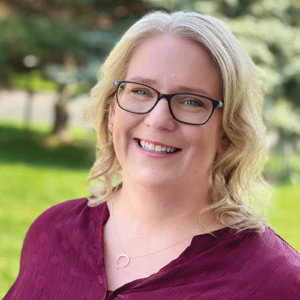
“It was so important to me to give back to this organization that helped me so much. I think that it’s important if you’ve been through it, you have this unique perspective that can help people see that there’s light on the other side.”

